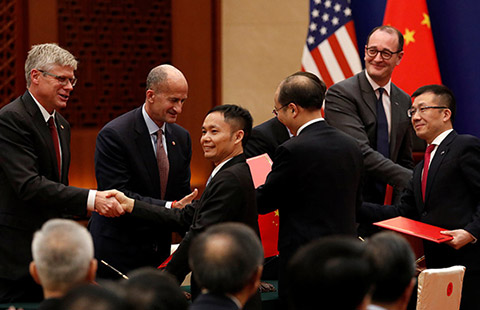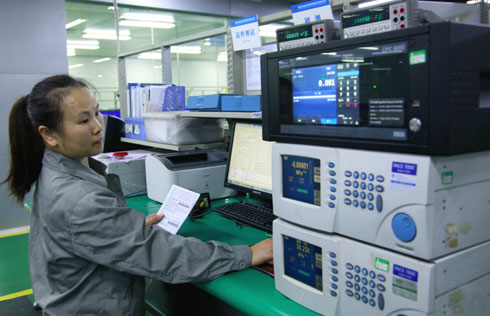Third round of mixed ownership reform set to include more local SOEs
China has picked a group of 31 State-owned enterprises for the third round of SOE mixed ownership reform, aiming to bring more private capital into the State sector, officials at the country's top economic planner said on Wednesday.
"The State Council has chosen 31 State enterprises, run by regional authorities or the central government, and we are working with the pilot enterprises to come up with implementation plans," said Meng Wei, spokeswoman for the National Development and Reform Commission, during a news conference in Beijing.
Mixed-ownership reform is designed to further diversify the ownership structure of SOEs, going beyond mergers, acquisitions and reorganization, and has helped improve central SOEs' efficiency and competitiveness.
The first two rounds of reform covered 19 SOEs that are gradually implementing their restructuring programs and more than a third of them have completed most of their reforms, including introducing new investors, boosting corporate governance and setting up new internal incentive mechanisms, Meng said.
Thanks to the reform, the financial results of 2,041"zombie companies", all subsidiaries of 81 major central SOEs, improved their business performance by cutting annual losses of 88.5 billion yuan ($13.36 billion) in 2016.
Zombie companies are economically unviable businesses, usually in industries with severe overcapacity, kept alive only with aid from the government and banks.
Analysts applauded the move, predicting a healthier and leaner SOE sector with new achievements as reform deepens.
Li Jin, deputy head of the China Enterprise Reform and Development Society, said chances are high that more locally administered SOEs will be included in the third round of reform, especially those in monopoly sectors.
The reform will cut the number of zombie companies, reduce excessive capacity and improve administration, said Li, adding that protecting the interests of SOE employees will also be a major task of reform.
"Like central SOEs, local SOEs should also set up a modern company system during the reform process," said Sang Baichuan, director of the Institute of International Business at the University of International Business and Economics in Beijing.
He said the management mechanisms of local SOEs may not be as sophisticated as those of centrally administered ones.
Xiao Yaqing, head of the State-owned Assets Supervision and Administration Commission, said in an earlier statement that China will continue to deepen SOE reform and experiment with mixed ownership.
The streamlining and upgrading of state firms will continue while promoting restructuring and mergers, in addition to developing strategic sectors, curbing overcapacity and tackling zombie enterprises, he said.
Zou Shuo contributed to this story.

























